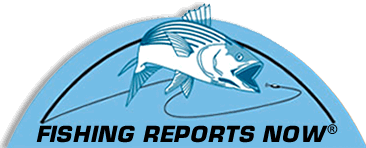About Bill to Provide Magnuson Flexibility
Editor's Note: H.R. 5425, the bill referred to in the below press release from the Recreational Fishing Alliance, is a proposed solution for fiascos like this year's large, 18-inch fluke or summer flounder size limit that's making fishing for this popular species very difficult this season, because relatively few of the fish grow that large. The fishing industry generally believes that the size limit is grossly unnecessary and unrealistic, because plenty of flounder, more than the industry has ever seen, fill the waters. The government is basically saying that the fluke population is unhealthy and needs to be rebuilt to a specific level. But the industry believes that the government's surveys of the fluke population are highly inaccurate and irresponsible. The problem is that the current laws are forcing the harsh restrictions on fluke fishing, and even threaten to close down the fishery next year, because the law allows no time for anyone to look into whether the government's targets for rebuilding the fluke population are unrealistic or unfounded. There should be no doubt that the government's surveys of the fish population are questionable at the very least. Although the government is now overhauling its methods, anglers have lost faith in such efforts. One example of a reason is that the government a few years ago said that only one-hundred or so weakfish were caught in New York during that year. Many single anglers alone probably caught that many in the state. In a nutshell, an act of Congress called the Magnuson Stevens Act allows no time, no flexibility, no chance for anyone to head off drastic measures like a closure of the fluke season or an essential closure, like the currently large fluke size limit, if such closures are unnecessary. It allows no flexibility to provide the amount of time that's needed to prove the measures unnecessary before the fishery is closed or essentially closed, no matter whether the fluke population might be healthy. H.R. 5425 would provide that flexibility. One thing is certain, the current fluke size limit in New Jersey is seriously hurting the fishing industry this year, and is preventing many anglers from participating in this fishery, the single most popular fishery in the state. Business is in danger of plummeting, and in some cases, already is. Whether the government cares remains to be seen. Organizations including the RFA and the Save the Summer Flounder Fishery Fund are spearheading the efforts to fight the government for anglers. Support them. Ultimately the responsibility is yours, the angler's. Nobody's going to do it for you. Be sure to do your part. From the Recreational Fishing Alliance: |
||
FOR IMMEDIATE RELEASE:
June 30, 2008
CONTACT:
Michelle Richmond
(202) 944-1976
John DePersenaire
(609) 404-1060 |
||
Recreational and Commercial Fishing Industries Unite For Fisheries Reform -Industry Leaders Descend on Capitol Hill to Make Their Case- WASHINGTON, D.C. – Members of the recreational, charter, and commercial fishing industries, representing well over 100 fishing organizations, met with Members of Congress and congressional staff in support of bipartisan legislation which promotes healthy populations of fisheries and fishing communities. H.R. 5425, the Flexibility in Rebuilding American Fishery Act of 2008, co-sponsored by Rep. Frank Pallone (D-NJ),Henry Brown (R-SC), Barney Frank (D-MA), and Walter Jones (R-NC) would provide a measure of flexibility into the management process without compromising conservation goals. At present, the law requires a total rebuilding of the stock of certain “overfished” species within 10 years, often requiring drastic reductions in fishing quotas and in some cases a complete or effective shut-down of the fishery. Those who attended meetings on Capitol Hill stated: “The Recreational Fishing Alliance (RFA) and its members continue to fight for fishing organizations nationwide. I am encouraged by the level of bipartisan support we have received for this legislation. Congressional support for H.R. 5245 is the first step to managing fish populations for both recreational and commercial purposes without compromising our conservation efforts or the rebuilding efforts initially established by the Magnuson-Stevens Act.”- James A. Donofrio, Executive Director of the RFA “The spirit of cooperation between the sectors was amazing. Everyone there recognized the passion we have in common, FISHING. Together we can effect positive change for the resource and the fishermen no matter if you were commercial, charter or recreational.”- Robert Spaeth, Southern Offshore Executive Director ”The real, and we believe, unintended impact of the current Magnuson-Stevens Act, is that historic fishing communities, small historic fishing families, and the fishing public are suffering brutal social and economic harm. So much so that the charter fishing sector is facing 25% or more of the national fleet going out of business at the end of this year. This inflexibility of the current Magnuson-Stevens Act along with a slow economy and increasing fuel prices is causing unprecedented reductions in fishing effort every day.” -Capt. Bob Zales, II, Executive Director, Conservation Cooperative of Gulf Fishermen (CCGF) “There are plenty of precautionary measures taken to protect the fish. It is time to recognize the need for precaution with the people who fish. The recreational and commercial sectors have come together for the first time in history because of the unfair and unnecessary fishing regulations being forced upon us. The increasing pressure from the current Magnuson-Stevens Act has caused over-restriction of fishing activity, costing the USA billions of dollars in economic impact.”- Dennis O’Hern, Executive Director, Fishing Rights Alliance, Inc. (FRA) "Rhode Island Saltwater Anglers Association (RISAA) is proud to support this legislation which will ensure conservation, rebuilding, and access for our fisheries."- Douglas MacPherson, Rhode Island Saltwater Anglers Association ORGANIZATIONS SUPPORTING H.R. 5425, THE FLEXIBILITY IN REBUILDING AMERICAN FISHERIES ACT OF 2008 Alaska Charterboat Association |


